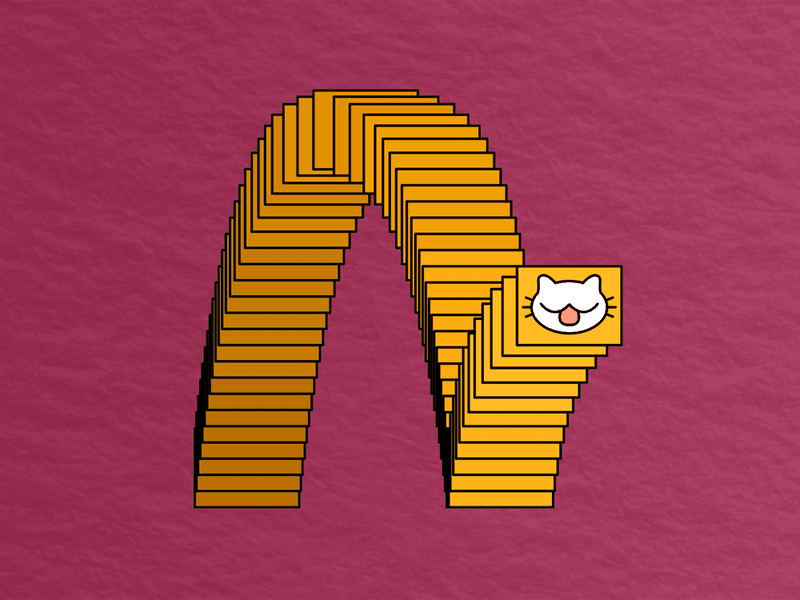Meme

[MUSIC - PSY, "GANGNAM STYLE"]
JOHANNA MAYER: If you've been on the internet at all the past few years--
PSY: Oppa Gangnam style.
JOHANNA MAYER: --this song is ingrained in your brain.
[MUSIC PLAYING]
JOHANNA MAYER: The original "Gangnam Style" video has been viewed over three billion times, and it spawned endless parodies, versions inspired by video games--
PSY: Super Mario style.
JOHANNA MAYER: --and former presidential candidates--
SPEAKER 1: Mitt Romney style.
JOHANNA MAYER: --and even the more quotidian.
SPEAKER 2: Working farmer style. Farmer style.
JOHANNA MAYER: Since "Gangnam Style's" heyday in 2012, approximately a gazillion memes have circulated the internet. And we think of memes as a phenomenon that's particularly born and bred online, but it turns out the word "meme" didn't actually come from the internet. It came from an evolutionary biologist.
[MUSIC PLAYING]
From Science Friday, this is Science Diction. I'm Johanna Mayer. Today, we're talking about the word "meme."
[MUSIC PLAYING]
You've probably used the word "meme" to talk about all sorts of stuff that you see online. But first, let's clear something up. What exactly is an internet meme?
GRETCHEN MCCULLOCH: Huh, that's an interesting question. [LAUGHS] So I think of an internet meme as a unit of internet culture, a piece of internet culture that spreads through internet people or people on the internet making their own versions of it.
JOHANNA MAYER: That's Gretchen McCulloch. She's an internet linguist-- coolest job ever. And she wrote a really great book called Because Internet.
GRETCHEN MCCULLOCH: So a meme spreads through people making other versions of it and through people putting their own spin on it. You don't just copy the thing that's been sent.
JOHANNA MAYER: Like the original "Gangnam Style" video.
GRETCHEN MCCULLOCH: You remake it to appeal to your particular subculture, or to appeal to some other group of people, or to mash it up with some other type of meme.
JOHANNA MAYER: Like Super Mario style or Mitt Romney style.
[MUSIC PLAYING]
Last time you have to hear that, I promise. OK. So what is the connection to science here? Let's talk about that evolutionary biologist I mentioned.
You've probably heard of Richard Dawkins. He wrote a book called The God Delusion. He's said some pretty controversial things about religion. But before all that, he worked on evolutionary theory and animal behavior.
So in the '70s, he wrote a book called The Selfish Gene. And we know how genes spread. Every time that a plant, or an animal, or really any living thing reproduces, it makes a copy of its genes. The more it reproduces, the more copies of these genes there are running around. That's the gist of evolution. But in the book, Dawkins talks about how the principles of evolution could work for other things too, because genes aren't the only thing that spread and evolve. Ideas do too.
GRETCHEN MCCULLOCH: Dawkins was looking for an ideological counterpart to the idea of a gene. So he wanted to use the analogy of a gene spreading through sexual selection and physical reproductive fitness to apply this to the spread of ideas.
JOHANNA MAYER: So when it comes to biology, that thing that's spreading, and reproducing, and evolving, and competing was called a gene. But when it came to culture and ideas, there wasn't a word for that thing. So Richard Dawkins made one up. He borrowed the Greek word "mimema," which means imitation, and mashed it together with our English word "gene." Mimema plus gene equals meme.
But when Richard Dawkins coined the word "meme," he didn't quite mean what we mean when we talk about internet memes today. First, obviously, didn't have to be on the internet because the internet didn't exist. But also, the original meme didn't have to go viral or get remixed. For Dawkins, a meme was simply an idea. And ideas, like genes, can spread, or they can die out. They can mutate, or they can stay the same.
So in the original idea, a whole lot of things could count as memes-- songs, recipes, the custom of saying "bless you" when someone sneezes, or the idea that the Earth is flat, even the idea of God. These are all memes, swimming around and competing in what Dawkins would call the meme pool. Obviously all these things existed before Dawkins came up with that word.
One of my favorite examples starts in a shipyard in Massachusetts with a guy named James J. Kilroy. There are tons of different versions of this story, but generally the most agreed upon one begins during World War II when Kilroy was working as a ship inspector. When he finished inspecting a ship, he would mark it with the words "Kilroy was here" to show that he was finished. And those ships that he marked would get sent into battle, and those words would go with them.
And then next to the words, a cartoon Kilroy began popping up all over in various countries. And it was more or less the same every time. It was the doodle of a man with googly eyes and a long, dopey nose, kind of a smattering of hairs on a bald head, peeking over a fence.
Always next to this cartoon dude were the words "Kilroy was here." Pretty much anywhere the Allied soldiers showed up, Kilroy did too. So memes existed way before Richard Dawkins hit the scene. He just gave them a name.
GRETCHEN MCCULLOCH: In the Dawkins sense, a meme is just an idea. It's not the strictly speaking internet type of meme that we think of it now. So a Dawkins meme could be the idea that the Earth revolves around the Sun. And that's not an internet meme, right? The idea that the Earth revolves around the Sun is a very boring internet meme. It's not very good as an internet meme.
[LAUGHTER]
It doesn't come with a fun video. It doesn't come with a dance. It doesn't come with an image.
JOHANNA MAYER: There are no cats.
GRETCHEN MCCULLOCH: There are no cats. There's no weird Photoshop text on top of an image. There's no sort of stylized thing.
JOHANNA MAYER: OK, so it's not the best internet meme. But the way that Dawkins originally meant "meme" just as an idea, heliocentrism definitely is a meme and a very successful one at that. So why do we associate that word with stuff that we do online?
For a long time, "meme" just wasn't a word that a lot of people were using. It was a made-up term in a book about evolution published in the '70s, pre-internet, pre-Twitter. And Selfish Gene was a popular book, but it was still a relatively specific group of people who were exposed to that word.
GRETCHEN MCCULLOCH: What you see in a lot of sort of meme histories is omitting this link. They go from Dawkins directly to the internet meme since. And I've always found this unsatisfying because it's like, how did this concept in social science research suddenly become the name of an internet cultural phenomenon? Where did that-- how did it cross over?
JOHANNA MAYER: It crossed over thanks to a guy named Mike Godwin. He's a lawyer and a writer who works on a lot of internetty issues. And in the '90s, he noticed this trend happening in conversations in various corners of the internet. People kept making really gratuitous comparisons to the Nazis. So say the pizza shows up, and it's cold, and slimy, and not very good. And then someone would say, we're being treated like concentration camp victims, that kind of thing.
So Godwin wrote an article about this whole phenomenon of people making bad Nazi comparisons, and he published it in the tech magazine Wired. And he called the phenomenon a meme, an idea that spread. So this is a reminder that not all memes are good, and funny, and lighthearted. Bad ideas can be memes too.
So as far as we know, that's the first time that the word "meme" crossed into the internet. Godwin plucked up this word "meme," this tiny kernel from a more than 300-page book about evolutionary biology. And he plopped it into this entirely new ecosystem, the internet. I really wish that I could tell you the exact big bang moment for memes as we know them online. It's impossible to pinpoint the precise moment, but maybe this song rings a bell.
BLUE SWEDE: Ooga-chaka, ooga-ooga.
JOHANNA MAYER: Remember the dancing baby CGI, bald, wearing nothing but a diaper, grooving to a Swedish rock song?
BLUE SWEDE: (SINGING) I can't stop this feeling.
JOHANNA MAYER: The dancing baby, sometimes known as Baby Cha-Cha, is widely cited as one of the first internet memes to really make the rounds, boogying its way into email inboxes everywhere. And people started playing around with dancing baby. There was a drunk dancing baby. Dancing baby became a recurring hallucination on the TV show Ally McBeal. And someone even made a version of the baby that was dancing to "Gangnam Style." Don't worry, not going to play that song again.
Memes have changed a lot since the dancing baby, but the internet is still where we primarily use the word today, usually to talk about pictures of cats eating cheeseburgers or distracted boyfriends. And internet memes are great. They are so fun. They provide an excellent distraction when you're pretending to work, but are actually just goofing around online.
But when we use that word "meme," we're actually talking about something so much bigger. Memes are ideas. They're our culture.
And that makes them as fundamental to our humanity as our genes, which might sound super weird to someone not familiar with the Richard Dawkins origin story. And hey, that is the best part of the story, how the word "meme" itself has spread and evolved over the decades since Dawkins coined it. In a recent anniversary edition of The Selfish Gene, Dawkins wrote about how the word itself seems to have caught on. "The word 'meme,'" he wrote, "seems to be turning out to be a good meme."
[MUSIC PLAYING]
Science Diction is written and produced by me, Johanna Mayer, with production and editing help from Elah Feder. Our senior editor is Christopher Intagliata, and we had additional story editing from Nathan Tobey. Our theme song and most of our music are by Daniel Peterschmidt, and additional music credits are on our website. Fact-checking help from Michelle Harris.
For more stories like these, subscribe to Science Diction wherever you get your podcasts. Special thanks to Gretchen McCulloch. For more word nerdery in your life, check out her book, Because Internet, and her podcast, Lingthusiasm. Thanks also to the entire Science Friday staff. Thanks so much for listening, and we'll see you next time with the new episode and a new word.
Copyright © 2020 Science Friday Initiative. All rights reserved. Science Friday transcripts are produced on a tight deadline by 3Play Media. Fidelity to the original aired/published audio or video file might vary, and text might be updated or amended in the future. For the authoritative record of Science Friday’s programming, please visit the original aired/published recording. For terms of use and more information, visit our policies pages at http://www.sciencefriday.com/about/policies/
